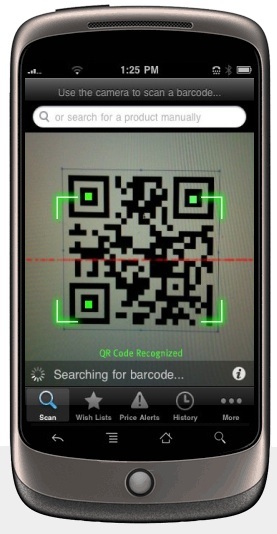QR Codes and Augmented Reality: Competing or Complementary?
 What exactly goes into a marketing budget? If you’ve ever read a corporate marketing plan, you know it includes a lot more than just a spreadsheet listing items like, Facebook campaign... $4,500, etc. It, hopefully, gets down to the nitty gritty at some point, but there is a lot (pages and pages) of strategy included in that plan.
What exactly goes into a marketing budget? If you’ve ever read a corporate marketing plan, you know it includes a lot more than just a spreadsheet listing items like, Facebook campaign... $4,500, etc. It, hopefully, gets down to the nitty gritty at some point, but there is a lot (pages and pages) of strategy included in that plan.
So what competes for budget dollars? It’s impossible to say, generally speaking, considering every company is different. Big, medium or small. International or local. High-tech or low. And so forth.
But, there is discussion lately about selected marketing tactics that do compete for budget dollars, specifically QR codes and augmented reality. That's because in a few important ways they are perceived as achieving a similar goal: creating a rich media experience with a product.
Augmented reality (AR), a classification of virtual reality, is the practice of overlaying computer-generated imagery (sound, graphics, GPS) onto a live feed of the real world environment. I had to look up some examples to get an accurate understanding of what it is and is not.
One of my favorites, used in a marketing capacity, is SnapShop Showroom. It’s a mobile app, downloadable for the iPad or iPhone, which allows a user to select a piece of furniture from the Showroom catalogue.
The selection brings up the device’s camera with an overlay of the sofa/nightstand/coffee table, allowing the user to manipulate or rotate the overlaid image. And voila! You too can be a designer. (Okay, for those of you disinclined to use augmented reality in home décor, Monday Night Football’s use of the yellow first down line is also a type of augmented reality.)
From a layperson’s perspective, specifically mine, AR is cool. There are a few specific ways I can envision using it (i.e. the aforementioned home design app).
However, I have an abundance of apps on my phone; I don’t need more. I’m not a big gamer, so I’m relatively out of touch with virtual reality. If I wanted more information about a product, I can imagine scanning a QR code, but I doubt I would download a product-specific app.
What I can deduce from my own experience is that QR and AR use is motivated by different consumer needs. And if this is the case, AR may compete with QR codes for budget dollars as it becomes more popular. It may even commandeer budget dollars, but AR won’t replace QR entirely.
See related articles:
Bar Code Industry Predictions, Part 2 - "I also think the debate about what comes next is interesting," said Marriott. "I am often asked if augmented reality will take the place of QR codes. I think that the two can work in tandem ...
QR Codes Add Interactivity to Special Edition of Revolver - ... about Nightmare, a pictorial of A7X fan tattoos, mobile video, secret interviews and much more. The issue is the first to feature QR Codes, an Augmented Realitytechnology that allows cellphone ...
{jcomments on}
